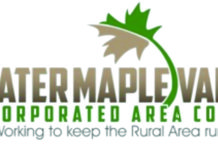King County Council Vice Chair Reagan Dunn on Wednesday introduced legislation to take a close and thorough look at system failures that led to the spilling of millions of gallons of untreated wastewater into Puget Sound and Lake Washington on January 13, 2021, and issue a report offering a set of recommendations for preventing future wastewater spills.
“King County needs to take the necessary steps to keep wastewater out of our waterways and off our beaches. It is not acceptable to have an event of this magnitude, and we must put a plan in place to prevent future spillage,” Dunn said. “The Puget Sound is one of the Pacific Northwest’s most valuable natural resources, and we owe it to our children, to not only be good stewards, but continue our decades long restoration effort.”
A rainstorm on January 13 caused flooding and power outages throughout the Puget Sound region and led to a power failure at King County’s West Point Treatment plant, located in Seattle’s Discovery Park. Due to the heavy rain and power outage, the plant spilled 11 million gallons of untreated wastewater — including sewage, industrial toxics, stormwater runoff, and other contaminants — into Puget Sound. An additional 2.4 million gallons of stormwater and sewage spilled into Lake Washington from other wastewater facilities, including Medina, Richmond Beach, and East Pine pump stations.
This recent wastewater spill follows the February 2017 failure at West Point that resulted in 235 million gallons of untreated wastewater flowing into Puget Sound. Such spills are known to impact the marine environment and result in the closures of public beaches in the area.
The required report would outline the causes of the wastewater spills and overflows on January 13; the consequences to Puget Sound and Lake Washington ecosystems; the potential impacts for waterfront landowners and facilities; the potential impacts to fish and shellfish; a summary of emergency discharges at the West Point Treatment Plant since February 2017; and the recent and projected future pattern and frequency of storms that could generate wastewater volumes that would overwhelm the West Point and the pump stations. The report would also put forward a strategy to reduce future spills, including ways to partner with the King County Flood Control District to help improve the wastewater facilities.
This report would be due to the King County Council on August 1, 2021.





